Don't wanna be here? Send us removal request.
Text
Vermiculite tiles: the application of choice for superior thermal isolation materials
In construction and industry, the choice of thermal insulation materials is of paramount importance. Among them, vermiculite bricks are highly prized for their excellent thermal insulation properties. Vermiculite brick is an insulating brick made of vermiculite, a natural mineral with unique physical and chemical properties.
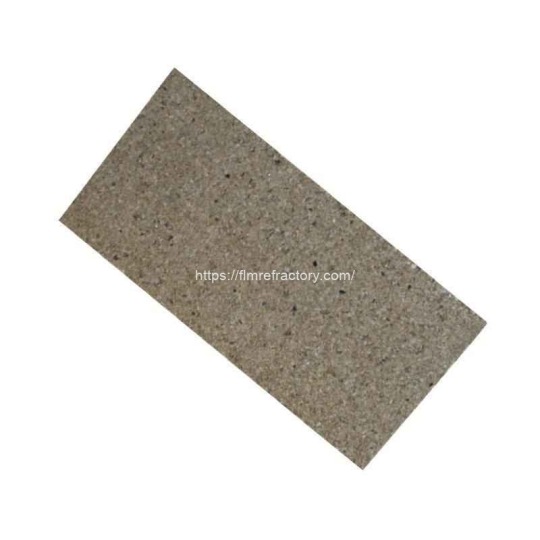
Vermiculite is a hydrated layered silicate mineral that is unique in that it expands when heated. When vermiculite is heated, the water evaporates and expands to form a thin, lightweight sheet-like structure. This structure gives vermiculite bricks their lightweight and porous nature.
The process of manufacturing vermiculite bricks usually involves the following steps: first, the vermiculite ore is extracted from a mine and then processed to remove impurities. Next, the vermiculite ore is mixed with a binder and compressed into brick form. This manufacturing process ensures that vermiculite bricks are lightweight and strong.

Vermiculite bricks possess a number of commendable features. Firstly, vermiculite bricks have excellent thermal insulation properties. Due to the flaky structure and porous nature of vermiculite, it effectively reduces heat conduction and loss, providing excellent thermal insulation. Secondly, vermiculite tiles are heat-resistant and can withstand the stresses and changes that occur in high-temperature environments. This makes vermiculite bricks ideal for applications requiring refractory materials such as fireplaces, stoves and kilns.
Vermiculite bricks have a wide range of applications in construction and industry. In construction, vermiculite bricks are often used in the construction of fireplaces and stoves. They provide excellent insulation in hot environments, ensuring that heat does not dissipate into the surrounding space, keeping the room warm and cozy. In addition, vermiculite bricks can be used in the construction of kilns and heat treating equipment for high temperature processing requirements.
In the industrial sector, vermiculite bricks play an important role in high temperature equipment and processes. For example, they are often used in iron and steel furnaces in the metallurgical industry and in high temperature reactors in the chemical industry. The excellent thermal insulation and refractory properties of vermiculite bricks can effectively protect equipment and improve process efficiency.
However, it is important to note that vermiculite bricks need to follow proper safety measures during use. Although vermiculite itself is not toxic, the dust generated during the handling of vermiculite bricks may pose a health hazard. Therefore, while installing, cutting, maintaining or cleaning vermiculite bricks, proper respiratory apparatus and personal protective equipment should be worn to ensure the health and safety of personnel.
The precautions to be taken when cutting vermiculite bricks can be clicked and read if you need to.
In summary, vermiculite bricks are insulating bricks made of vermiculite with excellent thermal insulation and high temperature resistance properties. They are widely used in construction and industry for fireplaces, stoves, kilns, and other applications where thermal insulation and refractory materials are required. The outstanding properties of vermiculite bricks make them the material of choice for many applications, creating comfortable and productive working and living environments.
0 notes
Text
What is Silica Mullite Brick?
Production process of silica mullite bricks
The production process of silica mullite bricks mainly includes the selection of raw materials, mixing, molding, drying, firing and so on. First, the high-purity silicate raw materials are crushed, and then a certain amount of additives and binding agents are added to form a slurry after mixing. Next, the slurry is pressed into a billet, and then processed by drying and firing to finally obtain silica mullite bricks.
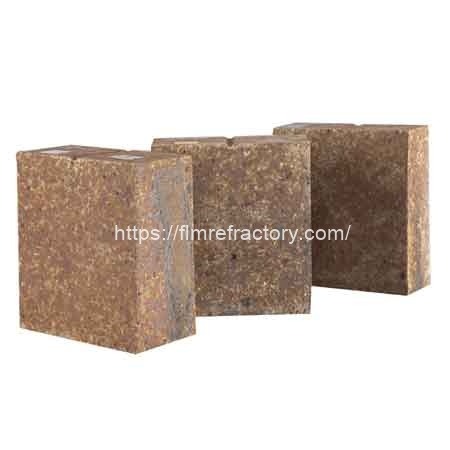
Advantages of silica mullite bricks
The advantages of silica mullite bricks are characterized by its good high temperature resistance, strong corrosion resistance and low coefficient of thermal expansion. In the high temperature environment, silica mullite brick can maintain stable physical and chemical properties, not easy to be oxidized, corrosion and other effects. In addition, the low coefficient of thermal expansion of silica mullite bricks can effectively reduce the stress and deformation caused by temperature changes.
Applications of silica mullite bricks
Silica mullite bricks have a wide range of applications and are mainly used for kiln linings, pipelines, valves and other parts in the iron and steel, cement, glass, ceramics and other industries. In the iron and steel industry, silica mullite bricks can be used for heating furnace, steelmaking furnace and other equipment lining; in the cement industry, silica mullite bricks can be used for rotary kiln, decomposition furnace and other equipment lining; in the glass industry, silica mullite bricks can be used for glass melting kiln, annealing furnace and other equipment lining; in the ceramics industry, silica mullite bricks can be used for tunnel kiln, shuttle kiln and other equipment lining.
For more information about mullite bricks, please visit: https://flmrefractory.com/alumina-brick/mullite-brick/
0 notes
Text
Types and characteristics of refractory bricks
What is a refractory brick
Refractory bricks, also known as “furnace bricks”, are bricks that can withstand high temperatures without melting or decomposing. These tiles are made of refractory clay, quartz, cellulose, asbestos, and other materials, and the refractory materials used vary from one type of refractory tile to another. Because of the different raw materials, the specific properties and applications of different refractory bricks vary, but they are usually characterized by their ability to maintain their shape, strength and stability at very high temperatures. Refractory bricks are mainly used to construct and repair smelting kilns, ovens, boilers and other equipment in high temperature environments.
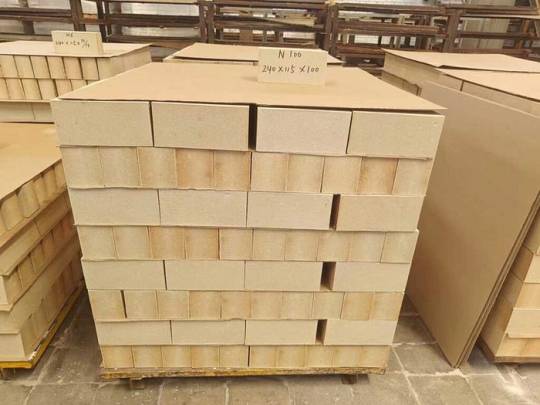
Types of Refractory Bricks
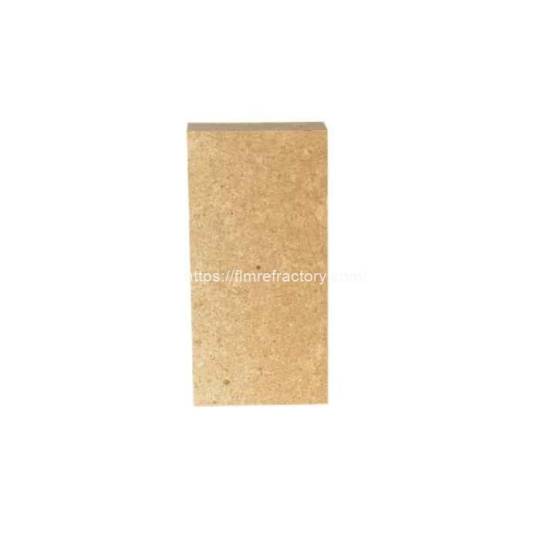
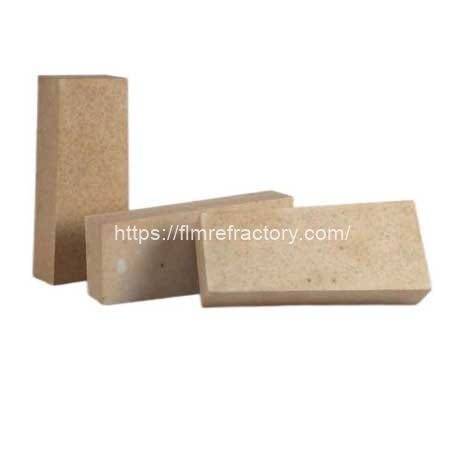
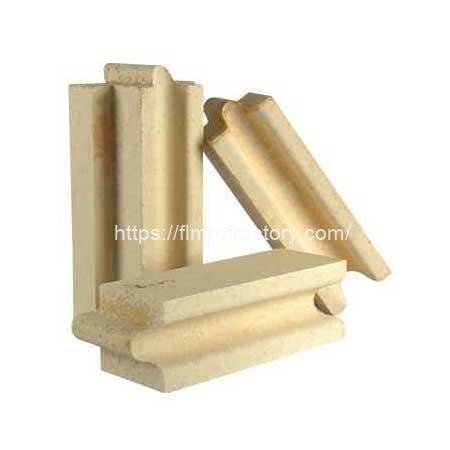
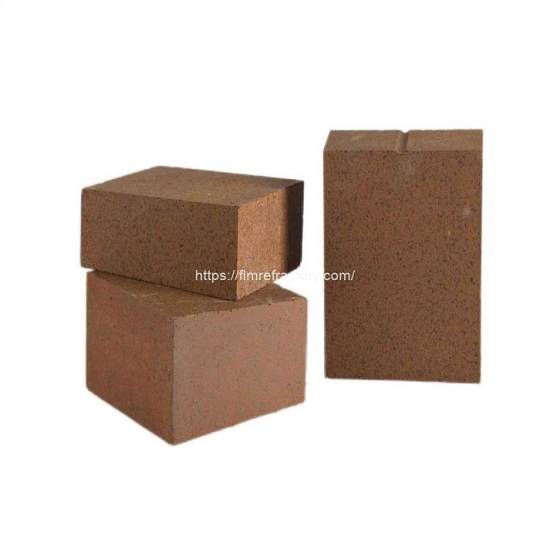
Silicon Carbide Refractory Brick Aluminosilicate refractory bricks are made of silicon carbide as the main raw material, adding appropriate amount of refractory agent, after molding, drying, firing and other processes made of refractory bricks. Silicon carbide refractory bricks have high slag resistance and good acid resistance, suitable for masonry of various high-temperature furnaces, ceramic kilns and so on.
Characteristics of refractory bricks
Good performance of high temperature resistance Refractory bricks have high refractoriness and can maintain good stability and integrity under high temperature environment.
Good thermal stability At high temperatures, the volume change of refractory bricks is small, and it is not easy for thermal expansion or contraction to occur, thus ensuring the stability of the structure.
Good chemical stability Refractory bricks have strong corrosion resistance to acids, alkalis, salts and other chemicals, and are able to maintain stable performance in harsh chemical environments.
Good mechanical strength Refractory bricks have high hardness and compressive strength, able to withstand large loads and impacts.
Good thermal conductivity Refractory bricks have a low thermal conductivity, which can effectively reduce the speed of heat propagation and minimize heat loss.
Environmental protection and energy saving Refractory bricks do not produce harmful substances in the process of use, no pollution to the environment; at the same time, its excellent thermal insulation performance can reduce energy consumption.
Refractory bricks are a kind of construction material with superior performance and wide application. Different types of refractory bricks have different characteristics and scope of application, you can choose the right type of refractory bricks according to the actual project needs.
0 notes
Text
What Are Refractory Bricks?
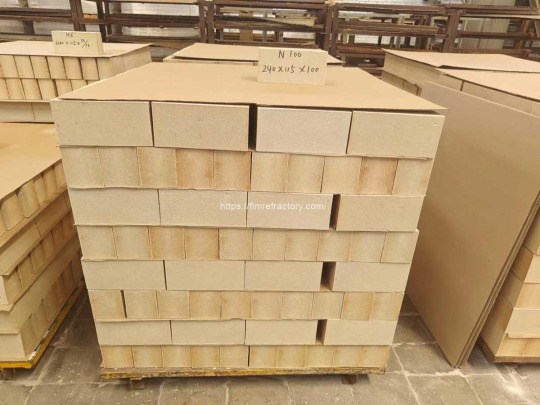
What Are Refractory Bricks?
Refractory bricks, also known as “furnace bricks”, are bricks that can withstand high temperatures without melting or decomposing. These tiles are made of refractory clay, quartz, cellulose, asbestos, and other materials, and the refractory materials used vary from one type of refractory tile to another.
Because of the different raw materials, the specific properties and applications of different refractory bricks vary, but they are usually characterized by their ability to maintain their shape, strength and stability at very high temperatures. Refractory bricks are mainly used to construct and repair smelting kilns, ovens, boilers and other equipment in high temperature environments.
The main use of refractory bricks is as a lining material for high-temperature industrial equipment, including steel furnaces, iron furnaces, glass kilns, cement kilns, pizza ovens, and more. These bricks effectively insulate the furnace from high temperatures, protect the structure body from overheating, and also improve energy efficiency as they have better insulation properties.
Content source: https://flmrefractory.com/fireramo-news/what-are-refractory-bricks/
1 note
·
View note